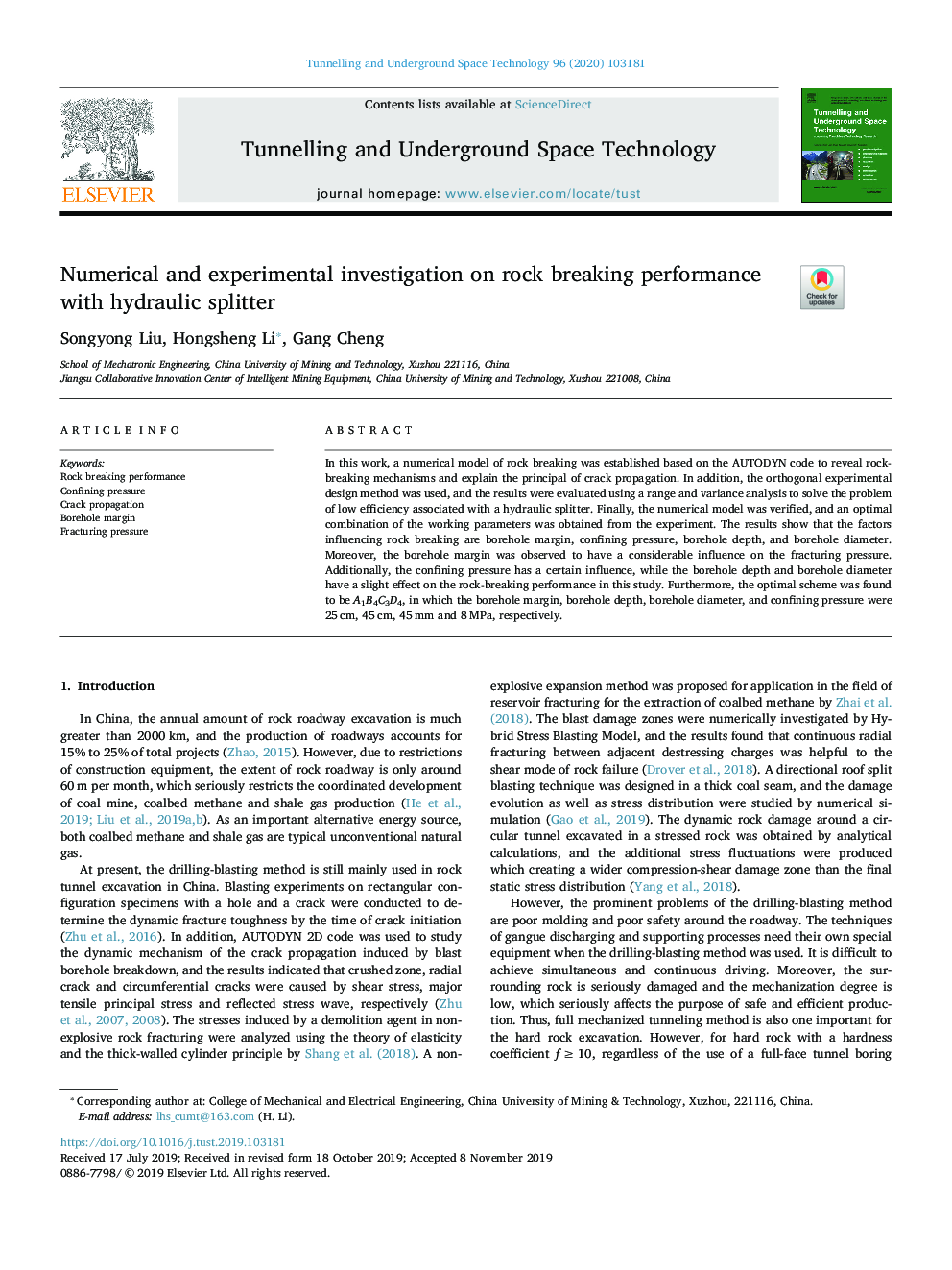| Article ID | Journal | Published Year | Pages | File Type |
|---|---|---|---|---|
| 13423016 | Tunnelling and Underground Space Technology | 2020 | 13 Pages |
Abstract
In this work, a numerical model of rock breaking was established based on the AUTODYN code to reveal rock-breaking mechanisms and explain the principal of crack propagation. In addition, the orthogonal experimental design method was used, and the results were evaluated using a range and variance analysis to solve the problem of low efficiency associated with a hydraulic splitter. Finally, the numerical model was verified, and an optimal combination of the working parameters was obtained from the experiment. The results show that the factors influencing rock breaking are borehole margin, confining pressure, borehole depth, and borehole diameter. Moreover, the borehole margin was observed to have a considerable influence on the fracturing pressure. Additionally, the confining pressure has a certain influence, while the borehole depth and borehole diameter have a slight effect on the rock-breaking performance in this study. Furthermore, the optimal scheme was found to be A1B4C3D4, in which the borehole margin, borehole depth, borehole diameter, and confining pressure were 25â¯cm, 45â¯cm, 45â¯mm and 8â¯MPa, respectively.
Keywords
Related Topics
Physical Sciences and Engineering
Earth and Planetary Sciences
Geotechnical Engineering and Engineering Geology
Authors
Songyong Liu, Hongsheng Li, Gang Cheng,
